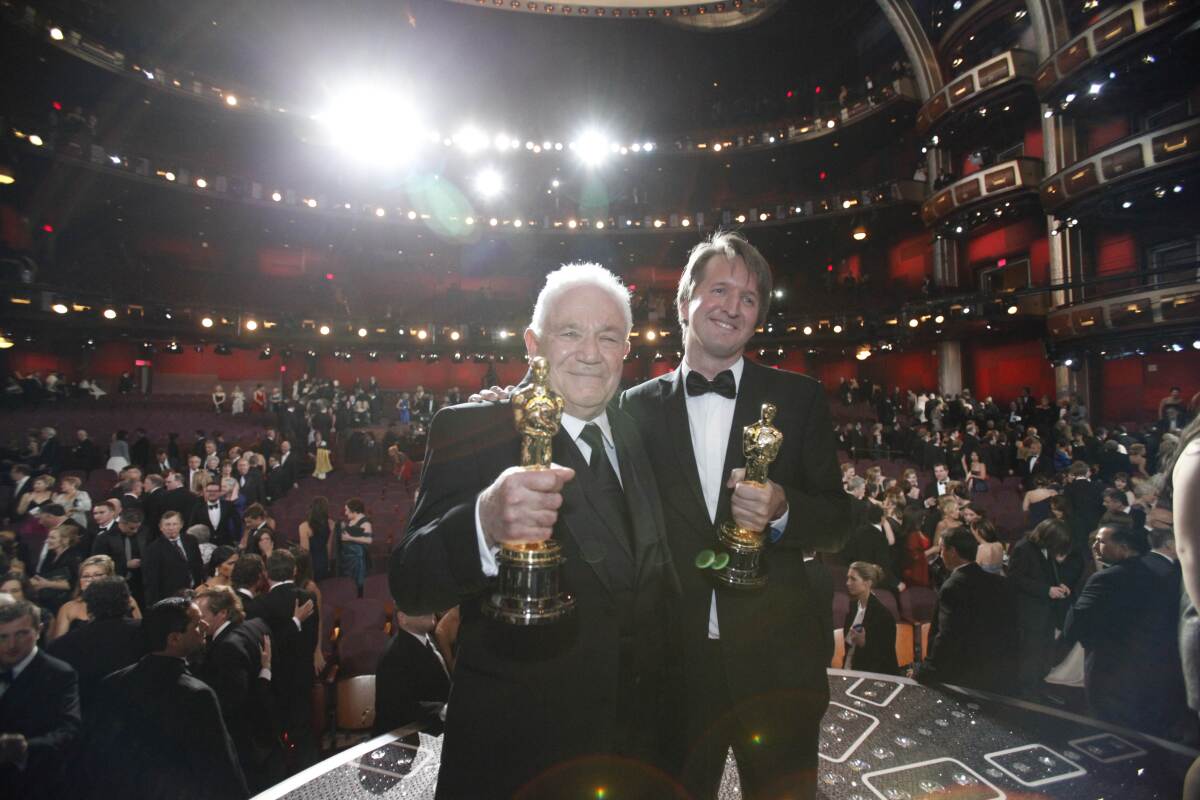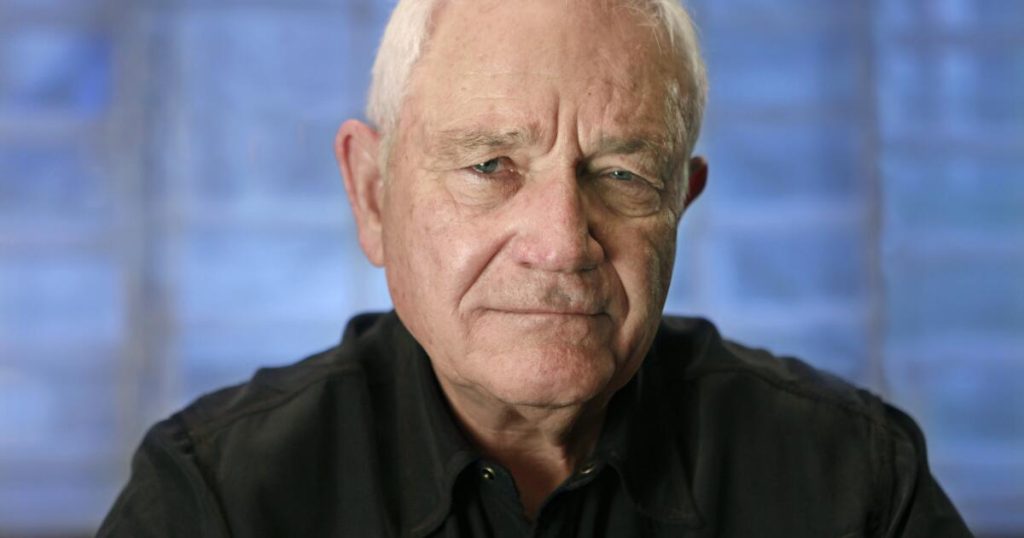David Seidler, the Oscar-winning screenwriter of the acclaimed 2010 drama “The King’s Speech,” has died. He was 86.
Seidler’s manager, Jeff Aghassi, told The Times that Seidler died Saturday while fly-fishing in New Zealand. No specific cause of death was given, but Aghassi said, “David was in the place he loved most in the world — New Zealand — doing what gave him the greatest peace, which was fly-fishing. If given the chance, it is exactly as he would have scripted it.”

“The King’s Speech” writer David Seidler, left, and director Tom Hooper onstage at the 83rd Academy Awards at the Kodak Theatre in Los Angeles in 2011.
(Al Seib / Los Angeles Times)
“The King’s Speech” swept the top categories at the Oscars in 2011, winning Seidler the award for original screenplay; the film also was named best picture, and Tom Hooper won in the directing category and Colin Firth won lead actor.
“The King’s Speech” is based on the true story of Britain’s King George VI (portrayed by Firth), who struggled with a severe lifelong stutter and was helped by Australian speech therapist Lionel Logue (Geoffrey Rush) ahead of his first national radio address after the start of World War II.
“Before the invention of radio, it was enough that they were these supreme, remote figures, who you saw at a distance over the heads of thousands of people, and they had great plumes on their heads so you knew which one was the king,” Seidler told The Times in 2010. “As a common man, you never heard the king speak. And then suddenly, you not only heard him speak, but you could hear him in your living room, in the privacy of your home where you could comment rudely about him. Big difference.”
Seidler himself overcame a childhood stutter, an experience he drew on in crafting an empathetic portrayal of George VI as he’s faced with a monumental task of public speaking at a perilous moment for his country.
“You know, I couldn’t have written this story when I was 33,” he told The Times in 2011. “Life provides all sorts of terrible obstacles and only later do you realize that they are really all for the good. I was crushed when [George VI’s widow, Queen Elizabeth] the Queen Mother told me not to write this in her lifetime. But I wasn’t ready. To tell the story correctly, I had to plunge myself back into the experience of being a stutterer. That meant going back to the pain and isolation I knew as a child. And I know inside that I just couldn’t have done that as a younger man. I wasn’t ready until now.”
Seidler, who was born in 1937 in Britain, moved to the U.S. in the early days of World War II. He attended Cornell University, where he was friends with writer Thomas Pynchon. His early gigs in entertainment included writing Japanese monster-movie translation dubs, and he broke into TV with the 1960s series “Adventures of the Seaspray.”
Before “The King’s Speech,” Seidler had an up-and-down career of features, including 1988’s “Tucker: The Man and His Dream,” about automobile designer Preston Tucker, directed by his former high school classmate Francis Ford Coppola.
The two had a bitter falling-out after the film, though, and Seidler returned to his career in television, which included the 1999 children’s animated feature “Madeline: Lost in Paris.” Before that, he’d written biopic-style TV movies such as 1985’s “Malice in Wonderland,” which starred Elizabeth Taylor as Louella Parsons, and 1988’s “Onassis: the Richest Man in the World.”
He survived a cancer scare in the early 2000s that pushed him to finally tackle his life’s dream of writing the script that became “The King’s Speech.”
“I was feeling powerfully sorry for myself, but then I rallied and threw myself into my work,” he told The Times. “I said to myself, ‘David, if you’re not going to write Bertie’s story now, when exactly are you doing to do it?’ “
More recently, a stage version of “The King’s Speech” was a success on London’s West End and was planned for a Broadway debut before the 2020 pandemic. According to Aghassi, Seidler “had multiple projects in active development, including documentary, limited series and feature films.”
Seidler is survived by two adult children, Maya and Marc.
